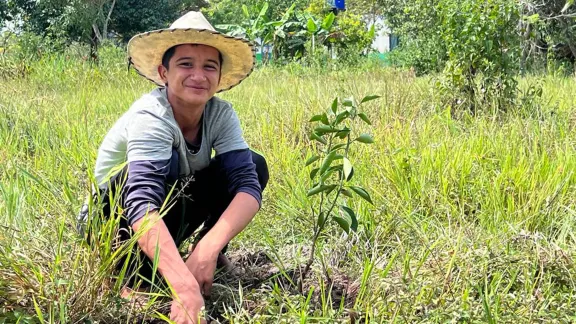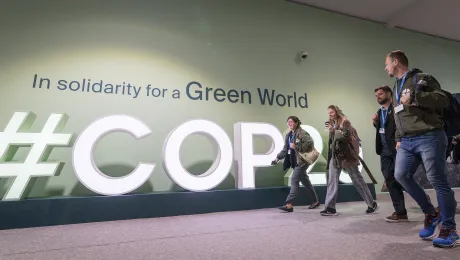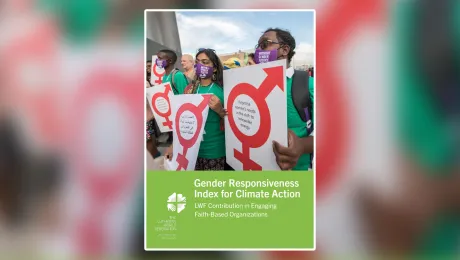
In Colombia’s Arauca region, where extractive industries have destroyed entire ecosystems, local farmers participate in an LWF-supported reforestation and land recovery project. Photo: LWF Colombia
LWF, ACT, and WCC issue joint statement following COP16 in Colombia
(LWI) –The Lutheran World Federation (LWF) joined its global ecumenical partners in urging governments to address the interconnected crises of biodiversity loss and climate change.
In a joint statement following the 16th meeting of the Conference of the Parties to the Convention on Biological Diversity (COP 16) in Cali, Colombia, 21 October-1 November, LWF, ACT Alliance and the World Council of Churches (WCC) called for “concrete actions to restore our relationship with nature” and with “the other species with whom we share the planet.”
We believe that promoting just relationships requires ethical and constructive dialogue between the natural, social, and theological sciences, as well as traditional knowledge and wisdom
LWF, ACT and WCC
The LWF and its partners reaffirmed the shared “commitment to play an essential role in protecting biodiversity and the health of the planet” and the urgent need to act amid the “climate crisis that is devastating our ecosystems.”
Ms Nathaly Quito, Evangelical Lutheran Church of Colombia (IELCO) represented the LWF at COP16. She underlined joint action with indigenous peoples and incorporating their ancestral knowledge, women’s leadership in environmental protection, and the active contribution of children and young people as advocates for nature. “This synergy enables a fair and equitable distribution of caring responsibilities in response to the climate crisis,” she said.
Urging governments to guarantee inclusive dialogues that empower these groups, LWF, ACT Alliance and WCC stated “their leadership is crucial to preserving life on our planet.”
The ecumenical partners also emphasized the importance of financial commitments, particularly from developed countries, to address these crises. They called for increased financing to support biodiversity and climate efforts, alongside a push for all nations to present integrated National Biodiversity Strategies and Action Plans (NBSAPs) that address climate risks and the vulnerabilities impacting their ecosystems and biodiversity.


